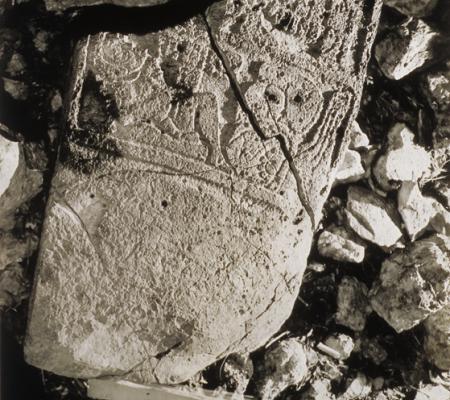We humans invest feelings in the things we make. It stands to reason, then, that the deliberate act of suppressing, destroying, or altering things of cultural value is an inherently political and radically disruptive act. It is also ritual: by diminishing, demeaning, or extinguishing things, people may symbolically seek to subject those who value them to the same fate. Even if the target is as abstract as a way of life or a religious belief, the process is often manifested in starkly physical form. Sometimes destruction or defacement is deemed enough, and the desired result is a complete physical annihilation; for example, the Spaniards in Mesoamerica almost managed, but not quite, to destroy every surviving example of Maya illustrated books. Sometimes a targeted thing is left in place, but in altered form or context to serve as a monument of shame; or a revered object, once destroyed, is left as a ruin to remind viewers of the barbarity of those who ruined it. Such, it is argued, was the case for some ancient Greek temples destroyed by invading Persians. A hated Roman emperor could be physically erased from public monuments, and the erasure left visible in the stone, paradoxically, to remind the public of what they should forget. Early Christians often built churches into, or over, temples of the Roman gods. But the erasure was not always complete: elements of the old form survived as inanimate hostages of the new, displayed as trophies of conquest.
Today such processes of disruption, destruction, and re-appropriation are as strong as ever. In Austin, we are witnesses to processes of gentrification by which the physical culture of traditional neighborhoods is demolished, painted over, or erased. Even campus libraries are under threat as a debate simmers over whether they should remain as vast repositories of physical things, or whether those things should be surrendered to the virtual world of electronic or remote access. Worries persist that such a radical displacement will, over time, devolve into an erasure.
The full schedule of talks and speakers can be found on the symposium's downloadable program.
Let UT Antiquities Action know if you are attending on the FB event page for "Erasing, Defacing, Replacing: The Coercion & Control of Things".
Organized by UT Antiquities Action.
Co-sponsored by The Department of Middle Eastern Studies, The Department of Classics, The Department of Art and Art History, The Center for Latin American Visual Studies, and The Mesoamerica Center.


